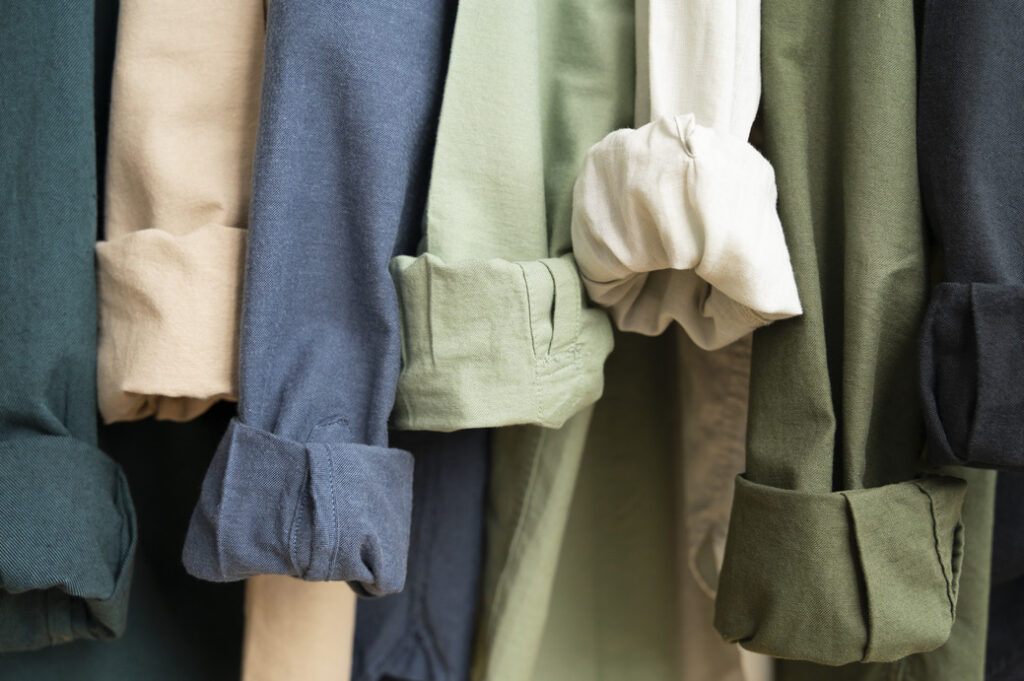How Traceability is Transforming the Fashion Industry in France
How Traceability is Transforming the Fashion Industry in France Article by Catherine Lomonaco Membré, founder GO Trace, company born to help with traceability in the Fashion Industry
Article by Catherine Lomonaco Membré, founder GO Trace, company born to help with traceability in the Fashion Industry and to offer training, free networking and consulting to have a positive impact on society and the environment.
Join Catherine on December 14 for an online webinar on the latest news from Europe in the fields of traceability and transparency of Fashion Supply Chains.
Traceability in fashion refers to the ability to track a product journey from raw materials sourcing to end-of-life that includes recycling and upcycling. This information being made available to consumers is called transparency, it allows them to make informed buying decisions.
Traceability is the cornerstone of sustainability. The importance of traceability in fashion has grown significantly in the past decade, especially after the Rana Plaza tragedy, ten years ago. With the increasing discussions on climate change, the environmental impact of the fashion industry has come under scrutiny. People’s consciences have been awakened to the various problems that can be caused by the fashion industry. And all over the world several initiatives worldwide were born.
But what about France?
France, moving towards traceability
France is no exception, French consumers follow the demand for ethical products. A survey carried out in France in 2021 by La Haute Ecole de Conseil en image and Thotaim revealed that 64% of respondents said they had purchased ethical fashion products during the year.
The study also highlighted that 78% of the French are willing to pay more for eco-designed fashion items, emphasizing the importance of clear communication about materials used and production locations. In a GO TRACE survey from this year, 94% of French consumers prefer to buy a garment with a traceability tag on it.

France, as a world leader in fashion, has taken regulatory measures to strengthen traceability in the sector. Textile products are required to comply with the traceability obligation introduced by a decree in April 2022 under the AGEC law (the anti-waste law for a circular economy), with a phased implementation schedule that started last January and is set to extend through January 2025. This law is an example of how the country is striving to make companies responsible for the entire life cycle of their products.
As Catherine Dauriac, President of Fashion Revolution France points out, “France is leading in terms of regulations.” The law requires companies to be transparent and to provide consumers with information about the geographical origin of the main production stages. For clothing items, this includes weaving or knitting, dyeing and printing, and making. For shoes, it’s stitching, assembly, and finishing.
This is a big deal.
As Robby Dubus, Head of Development at Textil’IA says, “companies are obliged to comply with the law, if they fail to do so they could be forced to withdraw from the market”. Sandra Wielfaert, Founder of Fashion That Cares emphasizes the impact of this regulation “Once the law comes into force the companies must comply. And those not directly affected often have to address the issue by ricochet.”
As Ellie Dahan-Lamort, Head of Advocacy and Community at the Fédération de la Mode Circulaire points out “The AGEC law has been a trigger for a good number of players, who have had obligations imposed on them regarding the management of unsold products, traceability and also the calculation of the environmental impact of their production. This law has therefore helped to raise awareness of these issues. Indirectly, it has also contributed to the creation of the Fédération”.
Challenges Ahead
Making a supply chain more traceable is no easy task “There is a desire for change, but the pace of transformation is slow” says Catherine Dauriac. Despite France being ahead in terms of regulation related to transparency, challenges remain.
Full traceability in fashion is hard to achieve due to the complexity of the supply chains spread out all over the world with potentially thousands of suppliers and often several sub-contractors involved.
Data collection can be complicated not only for this reason but because the information can also be “scattered across several departments” says Sophie Frachon, Head of Sustainable Development and CSR at the Union des Industries Textiles.
Implementing traceability requires technological investments and training and more work for the companies. It is time-consuming and it comes with a cost. Robby Dubus emphasizes the fact that “90% of French textile companies are SMEs, and do not necessarily have the time or resources needed to implement the measures required.”
A problem also highlighted by Sophie Frachon who says that “SMEs do not have the human and material resources to devote significant time to the subject of traceability”. The same goes for freelancers and micro-businesses, if most of them do not think yet about traceability, some of whom are more sensitive to this matter “don’t have the time or resources for it”, says Sophie Plassart, Co-president of the Maison des Arts du Fil.
Traceability might reveal issues that require solutions that might be difficult to implement, and might require organizational change, as Karine Leclercq Margraff, Director of Partnerships and Marketing at Crystalchain says another challenge for some companies is “to rethink the way they work”. Sandra Wielfaert states “companies don’t know where to start, the subject seems like a mountain to them”.
Slow but promising as always new initiatives flourish
Traceability is very important for sustainable fashion, as stated by Karine Leclercq Margraff, ‘It is the new backbone,’ and the market recognizes it. Over the past few years, the renowned fashion fair Première Vision has included a sustainability section and often addresses the issue of traceability in its magazine and in its hosting conferences, highlighting its critical role. The term also regularly comes up in the press, and the ultimate Paris Fashion Week marked a transformative shift with designers showcasing eco-friendly materials, paving the way for a more sustainable and transparent fashion industry.
“We are very often asked about traceability solutions, and we see that this is a subject at the heart of fashion companies’ concerns” says Sandra Wielfaert.
Thus, the fashion industry in France is witnessing a blossoming of significant initiatives.
As the demand increases, the industry is motivated to innovate and adapt.


On one hand, the rise of new technologies is playing a central role in this development. Companies such as Crystalchain or Textil’IA are exploiting IA and blockchain-based solutions to organize data and ensure the unalterable traceability of products, from origin to end user.
Meanwhile, initiatives such as Fairly Made, Clear Fashion and La Belle Empreinte are harnessing technology to advance sustainability and provide transparent and ethical information about the fashion supply chain, giving consumers and brands reliable information. On another hand, we are witnessing other significant initiatives among diverse actors in the French textile industry.
One example is this pilot project as explained by Elise Desrues, Deputy to the General Director of DEFI, which was conducted by them within the framework of the Strategic Committee of the Fashion and Luxury Sector that brought together 13 brands with the objective “to accelerate the deployment of traceability within the sector, in order to enable brands to meet regulatory requirements and consumer expectations”. The partnership between the UIT and Textil’IA is another example. In response to a request from the UIT for a simple, accessible traceability tool compatible with SMEs, Textil’IA is currently developing a digital tool to meet the request. This traceability project,” explains Sophie Frachon, “was born out of a desire on the part of French manufacturers to promote their production and give it visibility, so that consumers know that the product they are buying was made in France”.


Made in France
According to a survey conducted by Opinion Way in 2022, eight out of ten French people believe that French production is a guarantee of quality.
So it’s also this desire to promote French know-how that is driving French companies towards traceability considering there is a growing desire for French consumers to buy Made in France. There is a trend towards the relocation of part of the supply chain in France, as well as a redevelopment of the flax and hemp sector and an increase in local production. According to a survey carried out in 2021 by the GAIN (Global Agricultural Information Network), France is the world’s third largest producer of industrial hemp and Europe’s leading producer.
Today, 3/4 of the world’s production of flax fiber comes from Western Europe, and France is the world leader in its production. Since 2020, three new operational spinning mills have been launched in France and another project is under development in the country, according to the Alliance for European Flax-Linen and Hemp. More brands are highlighting their commitment to French production. For instance, the brand “1083” promotes its products as being made “less than 1083 km from home”, and “Le Slip Français” declares on its website that it collaborates with 29 partner manufacturers across France. These are just two examples among many French labels moving in this direction.
These efforts are transforming the fashion industry, showing that ‘Made in France’ is synonymous with a promise of quality, a move towards sustainability and a commitment to supply chain traceability.
